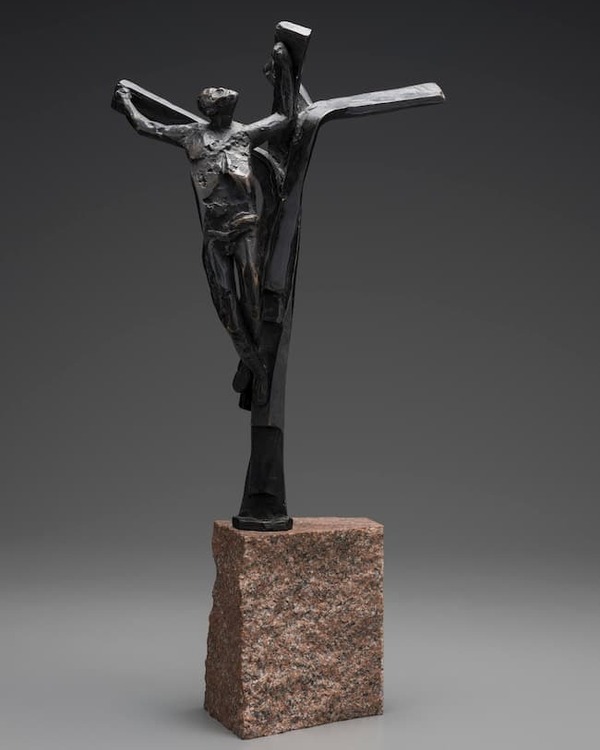Hadzi Crucifix
Dimitri Hadzi (1921-2006), the sculptor of this crucifix, was born to Greek-American parents in New York. He was at the forefront of abstract sculpture and was best known for working with metal and bronze to craft his pieces. After serving in the Army Air Force during World War II, Hadzi taught studio arts at Harvard University from 1975–89. His studio was located in Cambridge, Massachusetts. This particular piece was crafted in 1979 and is made of bronze with a stone base, measuring at 24x30x10 inches.
In 1979 the Archdiocese of Boston invited Hadzi to craft the processional crucifix for the newly elected John Paul II’s visit to Boston. Hadzi worked around the clock alongside the foundry in Providence to craft the project in two editions. The first was displayed on a staff used by the pontiff. The second, the crucifix on display at Notre Dame, was mounted on stone as an independent figure and was kept by Hadzi’s family until it was donated to the University after his death.
This crucifix is of the abstract style, with the body of Christ constructed of bronze and nearly separated from the cross itself. The only connection between Christ and the cross are at the four limbs. While the body of Christ is distorted, the cross is perhaps even more so; it appears to go in each direction, reaching for something in the distance. It appears as though both Christ and the cross want to depart from one another, but are each unable to do so. The distortion emphasizes the physical pain of Christ’s sacrifice.
In May of 1983 Hadzi was inducted as one of 250 members into the American Academy of Arts and Sciences. His artwork continues to contribute to the international sculpture community and culture, and his influence will last for years to come. Some of his pieces are present in public squares, concert halls, federal and private plazas, and universities around the world. As quoted on Hadzi’s website, “I’m interested in what I call the tyranny of art. Where the art takes over from the artist, and the artist, toward the end, isn’t as free as he thought he was.”
This crucifix was donated by Cynthia Hadzi of Cambridge, Massachusetts.
